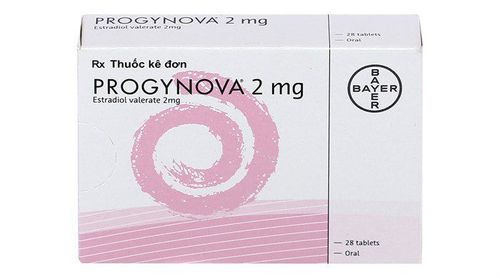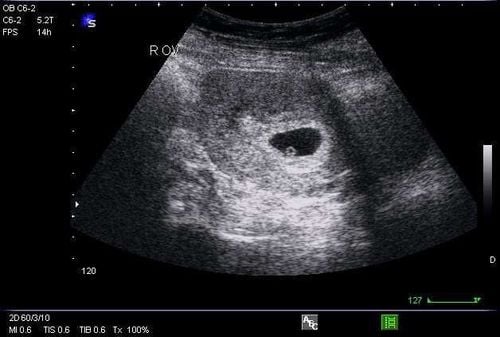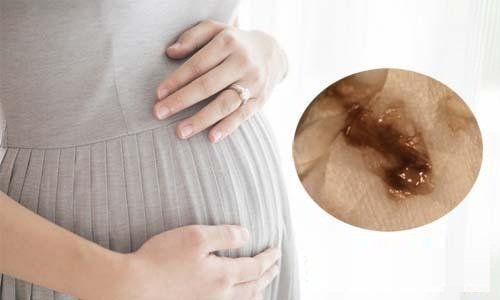At different times of the day, sperm health also changes in health and weakness. There are a number of reasons given that morning sex may help some couples get pregnant. Studies show that most men's sex hormones reach their highest levels in the morning, making sperm stronger enough to contact the egg.
1. When is the time to increase your chances of conceiving?
When you decide to start a family of your own but getting pregnant is not easy or quick. After 6 months of trying with my partner but still no results, so where is the problem?
If you are young (18-34 years old) and both you and your partner are healthy, you should not worry too much, because the cause is usually some simple problem, just a little change can help you get pregnant.
Dr. Steven Goldstein, a professor of obstetrics and gynecology at New York University School of Medicine, said: “By far, one of the most common causes in healthy couples is that they do not have intercourse at the right time. And often women simply do not correctly calculate Ovulation time or their fertile period in menstrual cycle”.
He explained: “After ovulation, an egg only exists for 24 hours. Therefore, if couples wait until ovulation to have sex, they will most likely miss the opportunity to get pregnant that month. Because sperm can only live in a woman's reproductive tract for up to 72 hours, you should have sex every 2 to 3 days throughout the month.
Therefore, doctors advise that having sex at least 3 days before ovulation will increase the chance of conception significantly.
While there are some people who believe that having sex in the morning will increase the pregnancy rate. Some studies confirm that men's sperm quantity is higher in the morning, but the difference is so small that it does not affect the ability to get pregnant.
Suppose your partner's sperm count increases from 87 million in the evening to 88 million in the morning. However, we only need the strongest "athlete" to meet the egg.
Don't force yourself to have sex more often just to improve the conception process. You and your partner should be in a really comfortable mood when having sex. Both of your emotions really make you feel comfortable, pressure only makes things worse.

2. So how to increase your chances of getting pregnant?
2.1 Prepare for good health
Health is a prerequisite for conception. If you and your partner are both in good health and completely psychologically comfortable, it will create better conditions for conception.
If one of you is not in good health, you should make some changes in your lifestyle such as: Practicing exercise and sports every day such as: Jogging, playing football, badminton,... any sport that you love. This can improve your chances of getting pregnant and having a healthy pregnancy.
Some people with non-communicable diseases such as diabetes, asthma, overweight and obese,... will have poorer sperm or egg quality in healthy people.
The problem of malnutrition due to being underweight also affects the chances of getting pregnant. Too much or too little fat in the body will cause a woman's menstruation to be irregular or stop menstruation completely. Sperm quality also decreased in men. It is also a common cause in infertile couples.
Couples should also pay attention to body mass index (BMI) to adjust your weight. This index can tell a person whether he or she is fat, thin or has an ideal weight. The index is calculated as the ratio between weight and height squared. If that index is within 18.5 to 24.99, the person is considered normal. Women with a BMI above 30 or below 18 often have problems conceiving.
To overcome this situation, couples should have a reasonable nutritional regimen such as nutritional supplements to gain weight or follow a diet to lose weight.
2.2 Limit alcohol use
Another common case is that couples are trying to get pregnant but one of them (or both) uses alcohol or tobacco. The UK's Chief Medical Officers have advised:
“If you are pregnant or planning to become pregnant, you should not drink more than 14 units of alcohol per week, divided equally over 3 days or more. Drinking too much alcohol will affect sperm quality and egg quality. Many studies have shown that active smoking can also reduce fertility in women even if the woman does not use tobacco (passive smoking).

For use Caffeine found in drinks such as: Coffee, tea, cola, there are still no studies. Some prescription, over-the-counter and recreational drugs will interfere with your fertility. You should only use medicine when absolutely necessary, such as when you are sick or have a certain disease. You should get advice from your doctor when you have to use medication while preparing for pregnancy to get advice on medications that have the least impact on the process of preparing for pregnancy and pregnancy, and do not have any negative effects on the health of you and your partner.
To prepare for a healthy pregnancy, health issues should be priority, so both husband and wife should check their reproductive health 3-5 months before getting pregnant.
The wife should:
- Vaccination before pregnancy (especially prevent rubella because rubella during pregnancy is extremely dangerous)
- Genetic testing to screen for genetic diseases before pregnancy.
- Check status gynecological infections avoid affecting the health of mother and fetus
- Especially women over 35 years old if they want to get pregnant (especially those who have never been pregnant before) will have to have a very detailed medical health check-ups because pregnancy at this age often has problems: Ovarian failure, premature birth, risk of fetal malformations, placenta previa, preeclampsia.
The husbands should:
- Check reproductive health, detect testicular atrophy, physiological weakness, weak sperm...
- Most sexually transmitted diseases especnially uncured extremely dangerous the disease

Reference sources: babycenter.com, webmd.comPlease dial HOTLINE for more information or register for an appointment HERE. Download MyVinmec app to make appointments faster and to manage your bookings easily.
SEE MORE
Does abstaining from sex make sperm stronger? Signs of Healthy Sperm How does sperm formation take place?
To arrange an appointment, please call HOTLINE or make your reservation directly HERE. You may also download the MyVinmec app to schedule appointments faster and manage your reservations more conveniently.









